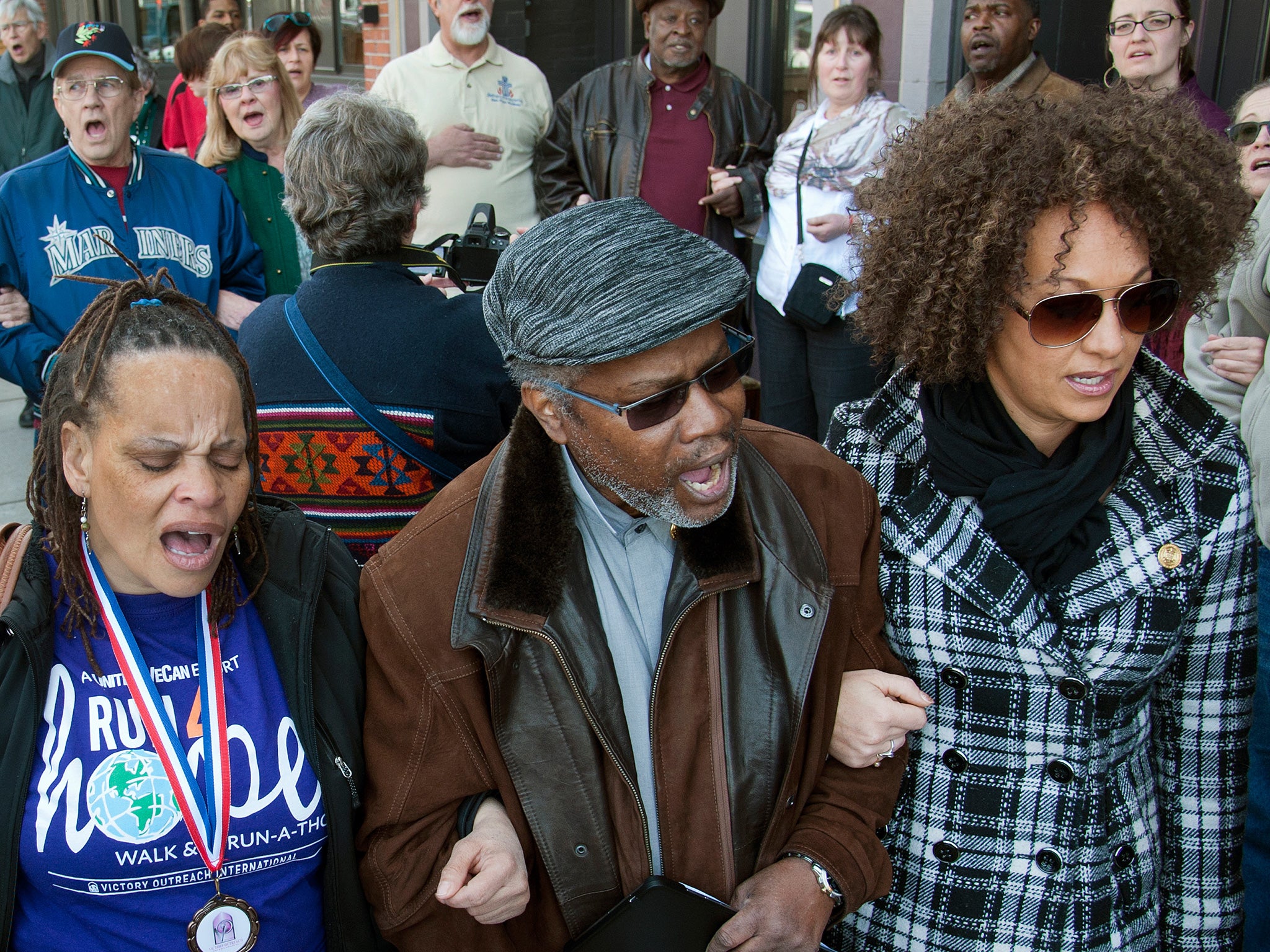If Rachel Dolezal can be Nkechi Diallo, can I identify as a white girl called Elizabeth at airport security?
Some of us spend our whole lives trying to get employers and teachers to see past our names. Dolezal's continuing misunderstanding of that undermines all the good work she did with the NAACP

Your support helps us to tell the story
From reproductive rights to climate change to Big Tech, The Independent is on the ground when the story is developing. Whether it's investigating the financials of Elon Musk's pro-Trump PAC or producing our latest documentary, 'The A Word', which shines a light on the American women fighting for reproductive rights, we know how important it is to parse out the facts from the messaging.
At such a critical moment in US history, we need reporters on the ground. Your donation allows us to keep sending journalists to speak to both sides of the story.
The Independent is trusted by Americans across the entire political spectrum. And unlike many other quality news outlets, we choose not to lock Americans out of our reporting and analysis with paywalls. We believe quality journalism should be available to everyone, paid for by those who can afford it.
Your support makes all the difference.When Juliet said to Romeo, “What’s in a name?”, Shakespeare was clearly oblivious to the fact that in the 21st century a name can determine your livelihood, it can determine whether you get to keep your seat on a plane, it can determine if your CV gets pulled to the top or pushed into the bin. Before we open our mouths to speak, our names often do the talking for us.
Rachel Dolezal – or should I say Nkechi Diallo – the disgraced former NAACP president who lied about being black, has legally changed her name to a West African moniker meaning “gift of god”. Despite receiving heavy criticism and worldwide condemnation for identifying as African American (and apparently stating that an unrelated black man she knew was her father), Dolezal/Diallo has continued to insist she considers herself to be black.
Now, Dolezal can identify as an African American all she wants, but despite having changed her name – Nkechi being an Igbo name from Nigeria and Diallo being a name taken from the Muslim Fula group in the Middle East and North Africa – she will never be able to relate to those who have had to grapple their way through their entire lives to get those who hold the power to determine the fate of their education and careers to look beyond their names.
Since her parents “outing” her as white made headlines, Dolezal’s life has been grim. As well as losing her livelihood, she has been rejected and shunned by the African American community she found belonging with, as well as plenty of white friends who also couldn’t fathom why she would make the decision to tell people she was a different race.
Last year Dolezal announced she was publishing a memoir, titled In Full Colour, and the book is set to be released next month. This, on top of the name change, has got people debating about whether Dolezal should be given a platform to explain herself or whether we should make a stand against this type of gross cultural appropriation. I’m inclined to argue the latter.
But let me break it down a little. Dolezal may have buried the name given to her by her white parents, but for actual African Americans and people of colour, the discrimination they face on a daily basis is far from dead. Living in the West as an ethnic minority means your British or American-ness may be doubted simply due to the colour of your skin or the name you carry. Recent political tremors like Brexit and the election of Donald Trump have bought to the surface the deep-rooted divisions prevalent in our societies based on religion and culture. Unlike Rachel Dolezal, those of us who actually belong to ethnic minority backgrounds don’t have the luxury of altering the colour of our skin, our accents, our religions or our names the moment they become detrimental to our lives.
The fact of the matter is that when I get stopped and searched at an airport while others get to traipse their way through security effortlessly, I don’t get to change my name to Elizabeth Jones and identify as something else for ease of transit. The colour of my skin and the outward display of my faith can still be used against me.
Dolezal built her entire career on falsehood. She found success via the appropriation of black culture and although she worked for a commendable cause, she damaged her own integrity by intentionally lying to her friends and colleagues about her identity. She then undermined the very cause she professed to hold close to her heart by imitating those who she was trying to support in their fight against discrimination. Dolezal’s concern for black Americans, it turned out, was all about her.
There were those that used the case of Dolezal to contend that race is pliable, but I beg to differ. Race is not a state of mind. Racial identity cannot be adjustable to one’s whim as long as the characterisation and demarcation of whiteness is rigid. Whatever In Full Colour argues, I won’t swallow it – and I won’t be referring to Rachel Dolezal as Nkechi Diallo any time soon, either.
Join our commenting forum
Join thought-provoking conversations, follow other Independent readers and see their replies
Comments